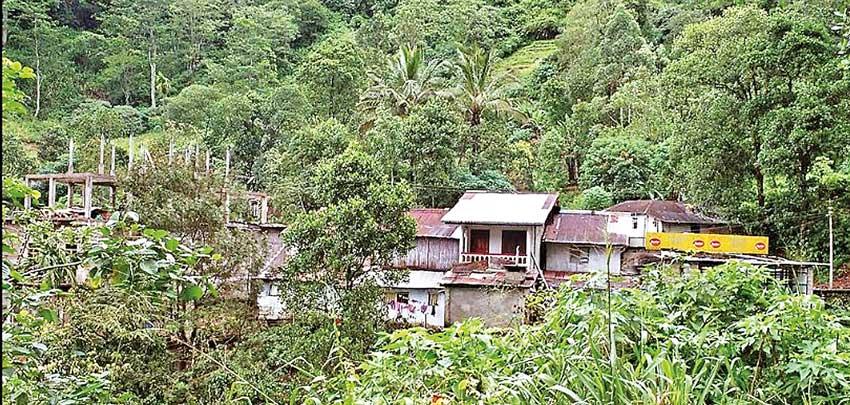Reply To:
Name - Reply Comment

Picture shows the shanty houses, known as “lines” where most of the plantation workers live

An old photograph showing the Indian Tamil plantation workers
| Upcountry Tamils who were brought to Sri Lanka by the British as plantation labourers commemorate two hundred years of existence in Sri Lanka this year |
 The Malayaga Makkal community, which over the years was referred to as the Indian Tamil or Upcountry Tamil community, for many years served as sacrificial labour, exploited and living in sub-human conditions despite being the backbone of the island’s economy.
The Malayaga Makkal community, which over the years was referred to as the Indian Tamil or Upcountry Tamil community, for many years served as sacrificial labour, exploited and living in sub-human conditions despite being the backbone of the island’s economy.

The multiple forms of discrimination faced by the plantation Sector Community (Known as Malayaka Makkal) should be eliminated and the Government should take measures so that they could become equal citizens of a truly multi-ethnic and multi-religious Sri Lanka, the Church of Ceylon and a group of other organisations said in a media release early this week.
“As Sri Lanka celebrates the 75th anniversary of independence from colonial rule, the Church of Ceylon calls upon the Government and people to take steps to eliminate the multiple forms of discrimination faced by the Malayaga Makkal community so that they can become equal citizens of a truly multi-ethnic and multi-religious Sri Lanka,” it said.
On this historical occasion, the Church, as the Christ Community commits itself to journey together with this community towards its legitimate and deserved goals and objectives.
The Malayaga Makkal will commemorate two hundred years of their existence in this country this year, 2023.
The tea plantations were one of the first foreign exchange earners for our country and laid the foundation for developments in the fields of education, health and infrastructure development that benefitted all communities in the country.
The Malayaga Makkal community, which over the years was referred to as the Indian Tamil or Upcountry Tamil community, for many years served as sacrificial labour, exploited and living in sub-human conditions despite being the backbone of the island’s economy.
We recall that this community cleared the treacherous jungles, courted danger and sacrificed their lives to firstly establish the plantations and thereafter worked under torrid conditions to make the plantations viable and ultimately a sector that was not only crucial to the country’s economic development but also an internationally recognized brand name for the country.
It is a matter of regret, however, that the vital contribution made by this community was not recognized and appreciated and that for decades the members of this community were subject to systemic discrimination.
The Citizenship Acts deprived them of citizenship; they were denied other basic human rights related to their dignity, privacy, economic security and educational opportunities. Though they have historically worked on the land, their rights to access and own land is severely curtailed.
There is a shortage of public officers who speak the Tamil language in divisional secretariats and other Governmental offices that are meant to cater to the needs of the people in the areas in which they live.
The United Nations Special Rapporteur on Contemporary Forms of Slavery, Tomoya Obokata, who visited Sri Lanka in December 2021, in his report to the Human Rights Council in 2022 noted:
“The Malayaga Tamils- who were brought from India to work in the plantation sector 200 years ago-continue to face multiple forms of discrimination based on their origin.”
The media communiqué was signed by: Rt. Revd. Dushantha Rodrigo, Bishop of Colombo President, Church of Ceylon, The Revd. W.P. Ebenezer Joseph, President, Methodist Church Sri Lanka, Rt. Revd. Keerthisiri Fernando, Vicar General, Diocese of Kurunagala, Church of Ceylon, Revd. Sujithar Sivanayagam, General Secretary, National Christian Council of Sri Lanka.